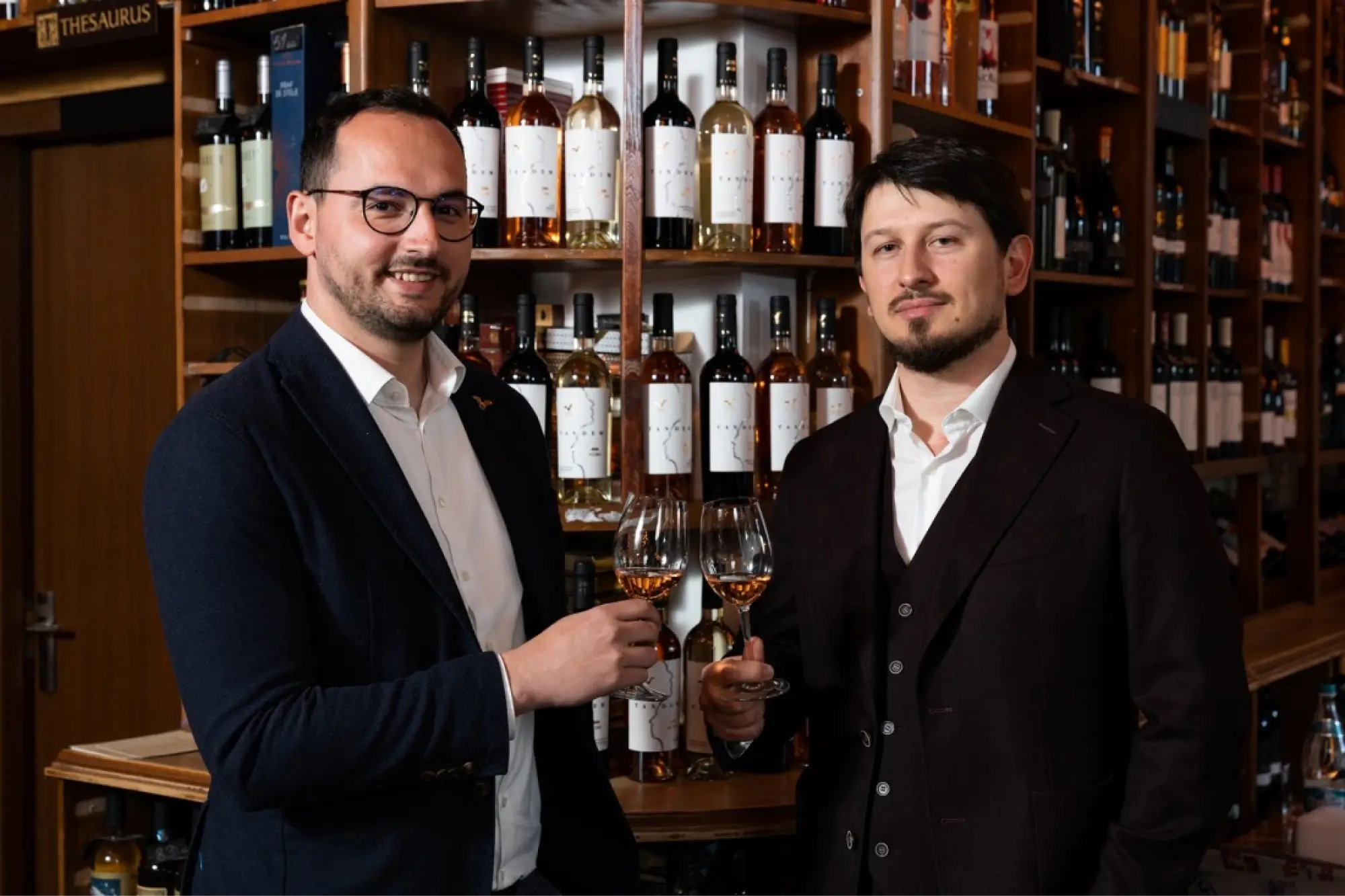
Miron Rm red wine that I couldn’t make before. We have invested €3.4 million in expanding the winery and are preparing to launch tourist services with accommodationadic, CEO of Crama Liliac: The effects of climate change, paradoxically, have helped us produce
January 22, 2024
The Liliac winery in Batoș, Mures county, expects a 20% increase in sales this year, as a result of last year’s €3.4 million investment in increased production capacity. It also plans to launch tourist services, including accommodation, at Batoș, where it makes its wines. For 2024, plans also include the launch of new wine assortments and the expansion of partnerships with retailers, Miron Radic, CEO of Liliac Winery (pictured left), told Economica.net in an interview.
Miron Radic studied Business Administration, Marketing and Production Management at the University of Economics in Vienna, where he wrote his bachelor’s thesis on Romanian wines. “Straight from there, I was hired by Mr. Alfred Michael Beck, the founder of Liliac, at amb Holding, the company that owns the winery. From 2015 I managed the winery, and from 2018 I became general manager of the winery and responsible for the whole company,” he recalls.
The Liliac story began in mid-2010, and in April 2022 the Liliac range of own wines was joined by the Tandem collection, made in partnership with the Castel Mimi winery in the Republic of Moldova, owned by Adrian Trofim (photo right). By the end of 2022, 38,000 bottles of wine had been sold: 60% were white wine, 25% rosé and 15% red wine. The wines went on sale in specialty and retail stores in the second half of 2022, and by the end of the year they had a turnover of 650,000 lei.
In 2023, the winery’s turnover decreased by 5% compared to 2022, as a result of investments that led to the bottling activity being stopped for almost three months. But the investment at Batoș has raised production capacity from 450,000 bottles to 600,000, and added other functions to the production line.
“For Liliac, 2023 was a year of transition, with a lot of investment in increasing production capacity, which is why we end the year with a turnover of around 9.4 million lei, 5% less than the previous year. This happened also because the expansion of the winery made us postpone bottling for two and a half months.
However, the capacity we have now will allow us to produce as much wine as we have never produced in a year, which makes us end the year optimistic and with the expectation that in 2024 we will have a 20% increase in turnover,” said Miron Radic.
Expansion plans also include the Tandem collection, which will receive new wine assortments, such as a dessert ice wine that “does very well in foreign markets.” Moreover, the two wineries are also exploring the potential to take Tandem wines to other retailers. Currently, they can be found on the shelves of major stores in Romania, such as Kaufland, Selgros and Auchan, as well as online retailers such as the eMAG group, including Freshful, or specialist stores – AlcoolDiscount.ro and FineStore.
The winery is also preparing to offer tourist experiences to visitors, including accommodation, at Batoș, where the Liliac winery is located and where the wines are produced.
“We will also focus our attention on wine tourism, offering event spaces and accommodation. This will be an opportunity for people to better understand the wine production process and buy products directly from the winery. If you’ve seen where a product comes from and know the story behind it, you get closer to it. We’ll talk more about them once we’re ready to launch,” Radic continues.
Inflation, lower demand, climate change and war
On the other hand, according to him, the challenge this year remains inflation. “There’s not the demand like there used to be, and even if wine is treated as a food, it’s still a luxury product. However, we are out of stock with many products, which can only confirm that as long as we offer quality, customers will continue to stay with us. In 2024 we continue to find solutions to the challenges that come with the first signs of a possible financial crisis and do what we do best, produce quality wine.”
Climate change is a challenge for the entire wine industry, but global warming has also brought an unexpected benefit. Warmer temperatures have helped the Liliac winery produce red wine. But there is also the flip side of unpredictable weather and sudden strong storms that can affect harvests, as in many other European countries.
“On the one hand, the effects of higher temperatures resulting from climate change have, paradoxically, helped us produce red wine that we couldn’t before. Being several months warmer helps us to bring the wine to maturity.
On the other hand, the unpredictable weather is also an obstacle for us. Not knowing what’s going on with the weather, sudden strong storms can affect our harvests. We are working with a state-of-the-art weather station that helps us prevent problems that could arise from climate change,” explains the CEO.
Another difficulty for the business is the war in Ukraine, especially for the Tandem collection because many of the raw materials, such as Tandem bottles, were produced there. But in particular, the impact has been emotional.
“The war in Ukraine has impacted us primarily on an emotional level, precisely because war is close and innocent people are suffering. Mimi Castle was one of the first places to offer shelter to refugees, and Adrian and his family helped many families in the first weeks after the war started,” said the representative of Liliac Winery.
